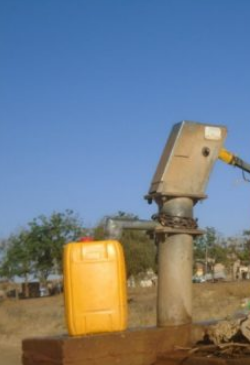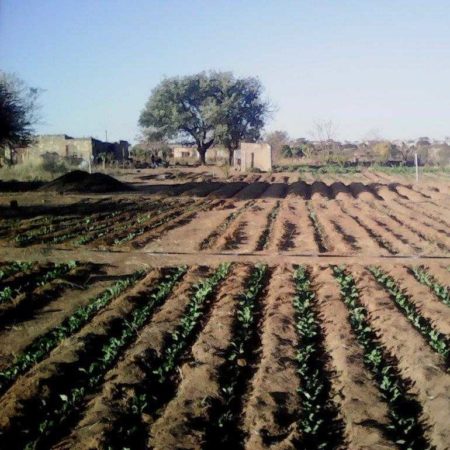“A dry weary land without water” such was the impression of Winterveldt in 1987 when the Sisters of Mercy were invited by the Area Action Committee to visit a site where it was hoped they would develop an education and health care facility.
The 14 hectare Plot 1080 was eminently suitable for the development envisaged; it was located in the midst of people who had been displaced from their homes by the Separate Development Act of the apartheid regime. People seeking refuge from war-torn Mocambique were newly arrived and from Zimbabwe too people began to settle in Winterveldt. Adults were longing for an educational opportunity and to participate in skills development programmes. A clinic was envisioned. That was the master plan.
But what of the hydrologic cycle and was there a water source? No municipal services in this barren landscape. However, noticing people sourcing water from underground seepage earned the nod for the project.

Moses came to mind – Mei Meribah too – “the waters of strife”. But there was no strife. Instead there was a rock and there was a Moses – in fact more than one Moses.
A healthy uncontaminated water table was declared. Generous donors through the Sisters of Mercy Trust, funded a borehole. Water pumps, piping and tanks were installed and in no time there was an abundance. Praise was given to God in many languages for Amanzi, Metsi, Mati, Mvura, Water – this miracle of our Creator.
34 years later water still pours forth from our aquifer not only for the programmes on the campus but to assist the neighbours when the municipal water runs out.

Food is scarce in these parts and funds more so. The gardening programme aims at food security for unemployed people. While water is scarce at home, the tanks play their part every morning as the vegetables get sprayed before the heat of the day. Then large containers of spinach, beetroot, sweet potato, cabbage, spring onion and lettuce make their way home to supplement the staple diet of maize meal. Of late peanuts have made their appearance. For those not familiar with the crop, peanuts grow underground. They are harvested by pulling up the stalk, much as we do with potatoes.
And the little ones come along with their Mams: Silindile cadges a ride in her Mam’s wheelbarrow – no carbon footprint for our Silindile as she speeds along in Mam’s convertible while her little friends seems to be planning a future in farming. Hopefully, by their day; we will have answered the call of Pope Francis to become ecologically converted.
We are proud that South Africa’s Legislative Mandate to the Water Department is to Protect, Manage, Develop, Conserve and Control this most precious life-giving resource created by our God for our welfare.
St. John Enright rsm
South African Province


